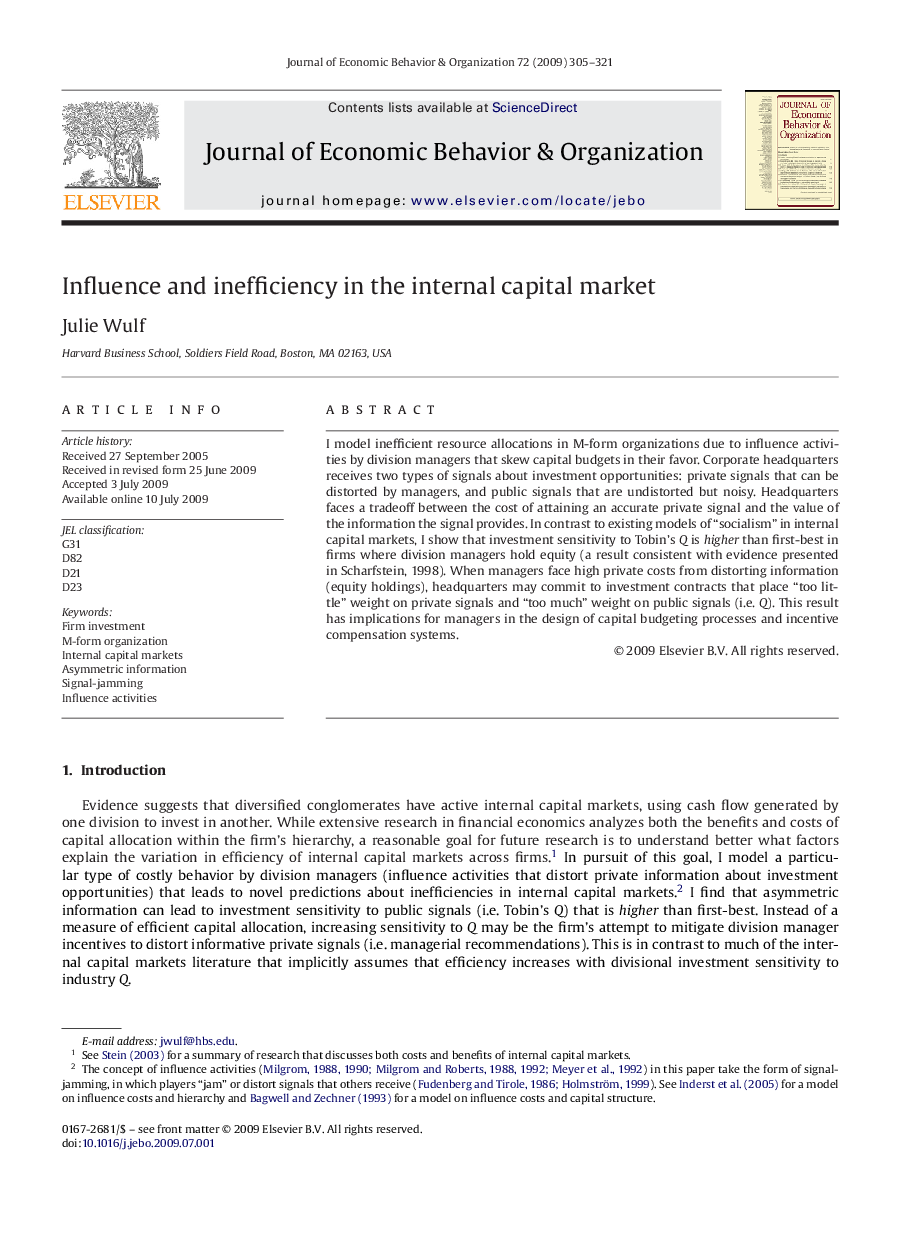| Article ID | Journal | Published Year | Pages | File Type |
|---|---|---|---|---|
| 884192 | Journal of Economic Behavior & Organization | 2009 | 17 Pages |
I model inefficient resource allocations in M-form organizations due to influence activities by division managers that skew capital budgets in their favor. Corporate headquarters receives two types of signals about investment opportunities: private signals that can be distorted by managers, and public signals that are undistorted but noisy. Headquarters faces a tradeoff between the cost of attaining an accurate private signal and the value of the information the signal provides. In contrast to existing models of “socialism” in internal capital markets, I show that investment sensitivity to Tobin's Q is higher than first-best in firms where division managers hold equity (a result consistent with evidence presented in Scharfstein, 1998). When managers face high private costs from distorting information (equity holdings), headquarters may commit to investment contracts that place “too little” weight on private signals and “too much” weight on public signals (i.e. Q). This result has implications for managers in the design of capital budgeting processes and incentive compensation systems.
